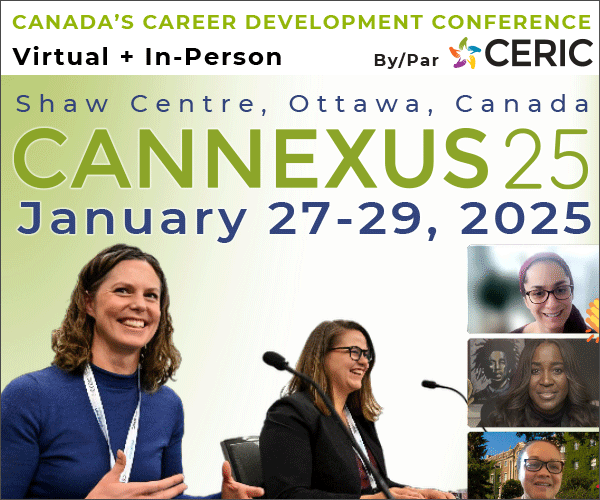Career Mentoring Surgical Trainees in a Competitive Marketplace
Career Mentoring in Surgery
DOI:
https://doi.org/10.53379/cjcd.2022.343Keywords:
Medicine, Employment in Healthcare, Surgery, Otolaryngology, MentorshipAbstract
Resident trainees in Canadian Otolaryngology–Head & Neck Surgery (OHNS) programs have cited job prospects as the biggest stressor they face. Increased numbers of residency training positions combined with decreased employment opportunities have worsened competition for surgical positions. The purpose of this inquiry was to explore gaps in resident career planning and examine how leadership can prepare graduating residents to optimize employability.
This mixed-methods prospective study was completed in two phases. A combination of online surveys and two focus group sessions were used to gather information from academic and clinical staff surgeons, resident trainees, and administrative leadership.
Eleven of the potential 12 resident participants responded to the initial survey, seven of the 13 staff surgeons, and one administrative leader. Each of the resident and staff focus groups had five participants. This comprehensive inquiry led to the development of a conceptual framework describing domains of concern important to OHNS residents. Themes included lack of career mentoring, complex systemic limitations, inadequacy of exposure to community-based surgical practice, and a potentially stifling organizational culture.
OHNS residents face significant stress regarding potential employability following residency. Solutions to address concerns must be collaborative in nature and begin with the existing leadership structure.
References
Austin, R. E., & Wanzel, K. R. (2015). Supply versus demand: A review of application trends to Canadian surgical training programs. Canadian Journal of Surgery. https://doi.org/10.1503/cjs.006614
Bogdan, R., & Knopp, S. (2003). Qualitative Research for education : An Introduction to Theory and Methods. In Qualitative Research. https://doi.org/10.1177/1468794107085301
Brandt, M. G., Scott, G. M., Doyle, P. C., & Ballagh, R. H. (2014). Otolaryngology - Head and neck surgeon unemployment in Canada: A cross-sectional survey of graduating otolaryngology - Head and neck surgery residents. Journal of Otolaryngology - Head and Neck Surgery. https://doi.org/10.1186/s40463-014-0037-3
Cooper, J. A., Dubois, L., Power, A. H., DeRose, G., MacKenzie, K. S., & Forbes, T. L. (2015). Canadian vascular surgery residents’ perceptions regarding future job opportunities. Vascular. https://doi.org/10.1177/1708538114541112
Department of Economic and Social Affairs. (2015). World population, ageing. United Nations, Population Division. https://doi.org/ST/ESA/SER.A/390
Dunbabin, J. S., & Levitt, L. (2003). Rural origin and rural medical exposure: their impact on the rural and remote medical workforce in Australia. Rural and Remote Health.
Easterbrook, M., Godwin, M., Wilson, R., Hodgetts, G., Brown, G., Pong, R., & Najgebauer, E. (1999). Rural background and clinical rural rotations during medical training: Effect on practice location. CMAJ.
Fréchette, D., Jacob, C., Datta, I., Jacob, C., Shrichand, A., & Hollenberg, D. B. (2013). What’s really behind Canada’s unemployed specialists? Too many, too few doctors? Findings from the Royal College’s employment study., 61. Retrieved from http://www.royalcollege.ca/portal/page/portal/rc/common/documents/policy/employment_report_2013_e.pdf
Iglehart, J. K. (2013). The residency mismatch. New England Journal of Medicine. https://doi.org/10.1056/NEJMp1306445
Mewhort, H. E. M., Quantz, M. A., Hassan, A., Rubens, F. D., Pozeg, Z. I., Perrault, L. P., … Ouzounian, M. (2017). Trainee Perceptions of the Canadian Cardiac Surgery Workforce: A Survey of Canadian Cardiac Surgery Trainees. Canadian Journal of Cardiology. https://doi.org/10.1016/j.cjca.2016.10.012
Morzycki, A., Retrouvey, H., Alhalabi, B., Efanov, J. I., Al-Youha, S., Ahmad, J., & Tang, D. T. (2018). The Canadian plastic surgery workforce analysis: Forecasting future need. Plastic Surgery. https://doi.org/10.1177/2292550318800328
Norton, L. (2018). Action Research in Teaching and Learning. Action Research in Teaching and Learning. https://doi.org/10.4324/9781315147581
Patchen Dellinger, E., Pellegrini, C. A., & Gallagher, T. H. (2017). The aging physician and the medical profession a review. JAMA Surgery. https://doi.org/10.1001/jamasurg.2017.2342
Patel, V. M., Warren, O., Ahmed, K., Humphris, P., Abbasi, S., Ashrafian, H., … Athanasiou, T. (2011). How can we build mentorship in surgeons of the future? ANZ Journal of Surgery. https://doi.org/10.1111/j.1445-2197.2011.05779.x
Rustgi, A. K., & Hecht, G. A. (2011). Mentorship in academic medicine. Gastroenterology. https://doi.org/10.1053/j.gastro.2011.07.024
Satiani, B., & Davis, C. A. (2020). The financial and employment effects of coronavirus disease 2019 on physicians in the United States. Journal of Vascular Surgery, 72(6), 1856–1863. https://doi.org/10.1016/j.jvs.2020.08.031
Silver, M. P., Hamilton, A. D., Biswas, A., & Warrick, N. I. (2016). A systematic review of physician retirement planning. Human Resources for Health. https://doi.org/10.1186/s12960-016-0166-z
Sinclair, P., Fitzgerald, J. E. F., Hornby, S. T., & Shalhoub, J. (2015). Mentorship in surgical training: Current status and a needs assessment for future mentoring programs in surgery. World Journal of Surgery. https://doi.org/10.1007/s00268-014-2774-x
Teman, N. R., Jung, S., & Minter, R. M. (2019). Mentors and Mentoring. In C. M. Pugh & R. S. Sippel (Eds.), Success in Academic Surgery: Developing a Career in Surgical Education (pp. 107–113). Cham: Springer International Publishing. https://doi.org/10.1007/978-3-030-19179-5_11
Zhang, H., Isaac, A., Wright, E. D., Alrajhi, Y., & Seikaly, H. (2017). Formal mentorship in a surgical residency training program: a prospective interventional study. Journal of Otolaryngology - Head and Neck Surgery. https://doi.org/10.1186/s40463-017-0186-2

Downloads
Published
How to Cite
Issue
Section
License
Copyright (c) 2022 Canadian Journal of Career Development

This work is licensed under a Creative Commons Attribution-NonCommercial-NoDerivatives 4.0 International License.














